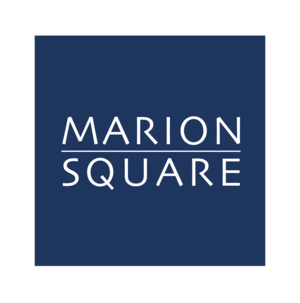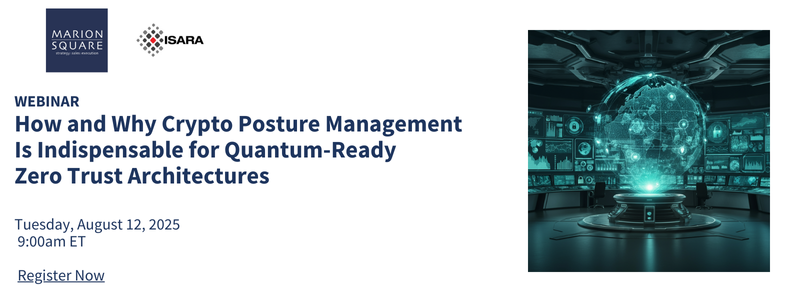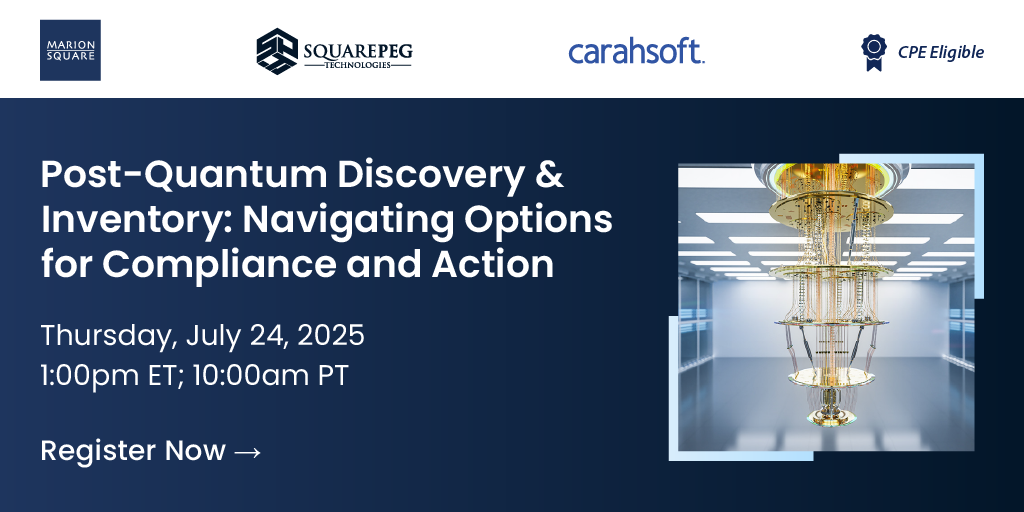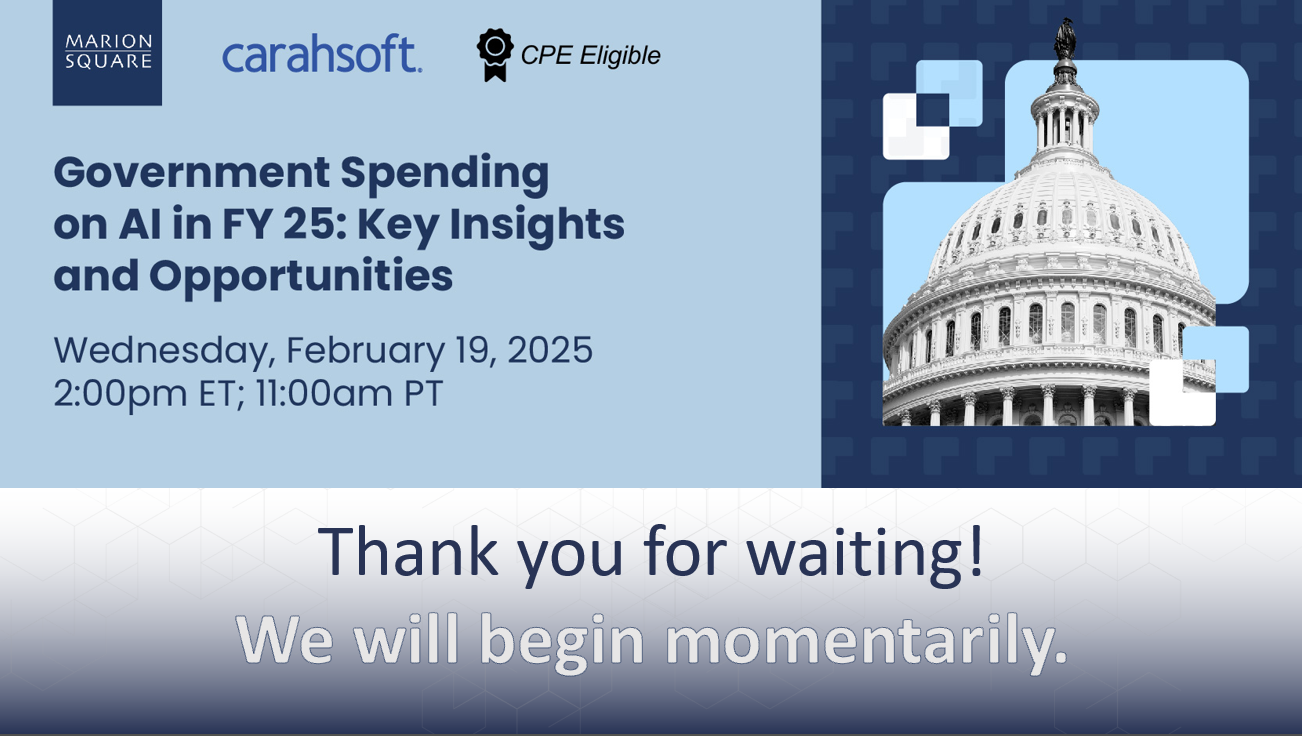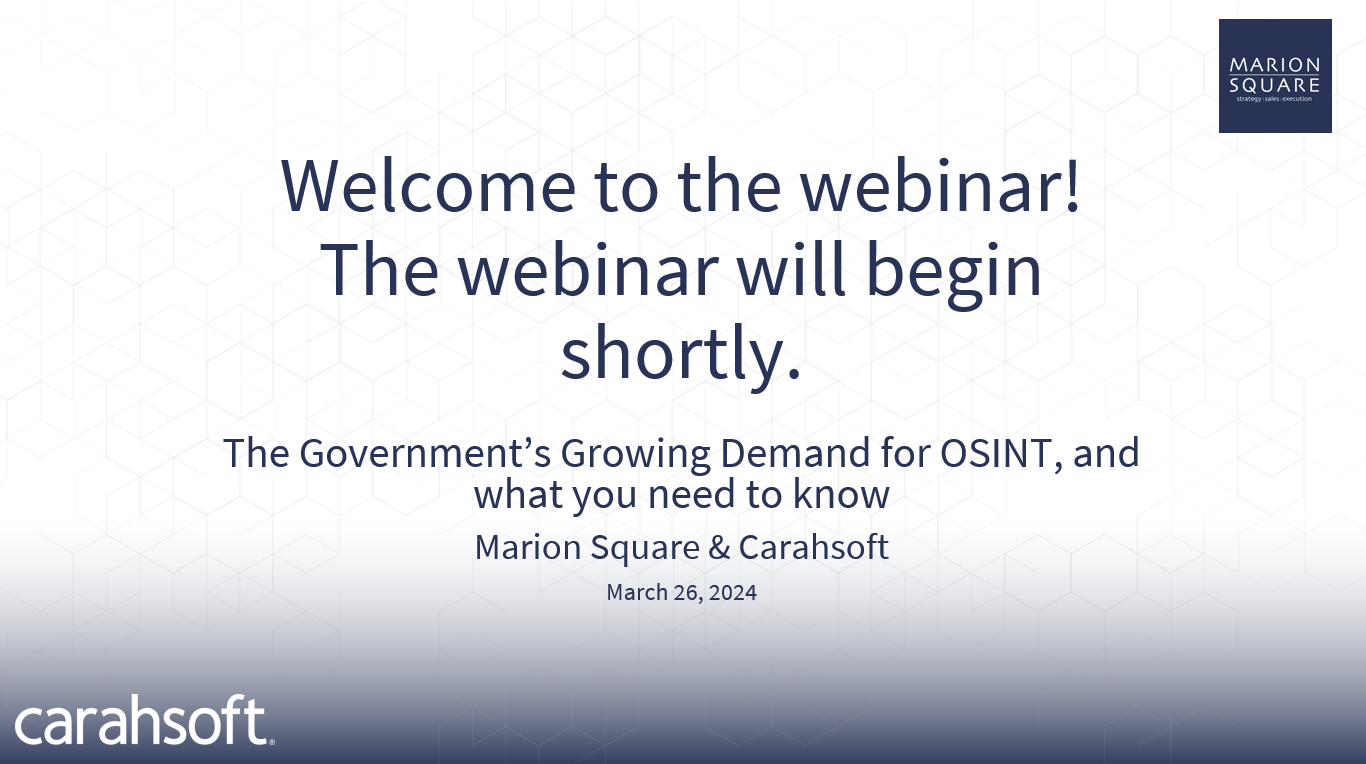Resources
Below you will find a collection of useful resources for companies that are interested in doing business with the federal government. Included are blog posts, news items, links to external resources and more. Use the filters and search to find exactly what you are looking for.
Many organizations make the mistake of treating quantum readiness and the deployment of a Zero Trust Architecture (ZTA) as distinct initiatives. In this webinar, ISARA and Marion Square discuss the connections between these two undertakings and explain why having a strong cryptographic posture management program is indispensable to adopting a Quantum-Ready ZTA.
Webinar recording from August 12, 2025
On August 6, 2025, Senators Gary Peters (D-MI) and Marsha Blackburn (R-TN) introduced bipartisan legislation that could significantly accelerate the nation’s migration to post-quantum cryptography (PQC). The bill, known informally as the National Quantum Cybersecurity Strategy Act, underscores a growing federal urgency: quantum computing is no longer just a research milestone it’s a looming cybersecurity disruptor.
For technology providers, government contractors, and agencies alike, this legislation represents both a challenge and a market defining opportunity.
As federal agencies accelerate their timelines for post-quantum encryption (PQE) readiness under NSM-10, OMB M-23-02, and forthcoming FIPS 140-3 mandates, a foundational requirement is completing a comprehensive cryptographic inventory and discovery process. However, how agencies get there and what tools or partners they use can vary widely. In this timely webinar, co-hosted by Marion Square and Square Peg Technologies, we broke down the evolving landscape of PQE inventory requirements and provided a practical guide to the approaches agencies are taking to meet them.
Webinar recording from July 24, 2025
If you're in AI, cybersecurity, infrastructure, or defense tech and still sitting on the sidelines of the federal market, now is the time to move. A recent Financial Times article called attention to the surge of interest and investment in defense tech start-ups. But the trend goes far beyond drones and weapons systems. It’s a signal that the U.S. government is actively buying, planning, and modernizing and the window for engaging in FY 26 is already open.
As of July 21, 2025, the federal Fiscal Year 2026 budget has not been fully passed. While both chambers of Congress have made substantial progress on individual appropriations bills, the complete budget package awaits final approval. FY2026 officially began on October 1, 2025, creating pressure for lawmakers to finalize funding or resort to temporary measures.
GSA's OneGov initiative is reshaping how the federal government buys IT software and while the spotlight is currently on major vendors like Google, Adobe, and Salesforce, the implications extend far beyond the big players.
Federal IT spending continues to grow, but how agencies choose technology partners is changing fast. GSA’s OneGov initiative and the Department of Government Efficiency (DOGE) mandate are redefining what it means to be a competitive vendor in today’s procurement landscape.
The federal buying landscape is undergoing a fundamental transformation. With the rise of the Department of Government Efficiency (DOGE), agency decision-makers are now laser-focused on one thing: results. Features and functionality alone no longer win contracts — vendors must clearly demonstrate how their solutions drive measurable business outcomes aligned to mission priorities.
One of the most important developments in recent years arrives this week: the Department of Defense's formal launch of SWIFT the Software-Initiated Fast Track.
Backed by the Office of the DoD CIO and spearheaded by Katie Arrington, SWIFT is designed to radically accelerate the acquisition and deployment of commercial software across the Department. More than a program, SWIFT represents a shift in philosophy – one that software companies must understand and adapt to if they want to stay competitive in defense.
Since 2018, federal quantum funding has grown steadily year-over-year from just over $400 million in FY19 to nearly $1 billion in FY23. This surge is anchored by the National Quantum Initiative Act (NQIA), which authorized over $1.2 billion in its first phase to support national labs, academia, and private-sector collaboration.
On March 15, 2025, President Trump signed a full-year Continuing Resolution (CR) into law for Fiscal Year (FY) 2025, a move that significantly impacts various sectors, including technology companies. This legislation funds the government at FY24 enacted levels through September 30, 2025, accompanied by notable increases in defense spending and reductions in non-defense allocations. For technology companies working with or adjacent to government programs, this CR brings both opportunities and challenges.
Budget reconciliation is an internal tool that Congress uses to adjust revenue and spending but does not directly fund government operations. The real impact for vendors comes from the appropriations process, which determines actual agency budgets and purchasing power. Understanding where we are in the process helps you better time your federal sales efforts and align with government priorities.
With 1,700 AI use cases identified in U.S. Government agencies, FY25 will be an important year for both established and emerging tech companies focused on AI and machine learning. Gain critical insights into the rapidly evolving government AI landscape and learn how to align your strategies with federal priorities.
Webinar Recording from February 19, 2025
The integration of artificial intelligence (AI) into federal operations is a cornerstone of government technology priorities for Fiscal Year 2025. At Marion Square, we’ve been closely tracking the federal AI market and uncovering significant trends that indicate where technology investments are heading.
The US Government’s increasing investment in AI represents an unprecedented opportunity for companies willing to align with its strategic priorities. While the road to adoption may vary between agencies, a deep understanding of priorities such as infrastructure, national security, ethics, R&D, and workforce development can set your company up for success in FY25.
In October of 2023, the Biden Administration issued an Executive Order aimed at securing the United States’ leadership in the development and deployment of artificial intelligence while ensuring this technology is used responsibly to protect individual privacy and data. This landmark order sets new standards for AI safety and security, upholds Americans’ privacy, promotes equity and civil rights, safeguards consumers and workers, encourages innovation and competition, and reinforces American leadership on the global stage.
As quantum computing continues to evolve, the security of existing cryptographic systems faces an unprecedented threat. Post-quantum encryption (PQE) is no longer a distant goal; it is a critical, urgent priority. Marion Square has been actively tracking the federal government’s transition to PQE, working closely with both technology companies and government agencies to ensure a smooth and secure transition.
Federal mandates such as NSM-10 and OMB 23-02 have set the course for agencies to begin their PQE journeys. The stakes are high, and failure to meet these mandates could expose critical systems to quantum-enabled adversaries. According to the recent OMB report to Congress, the government is expected to spend approximately $1 billion annually over the next decade on this transition, though many experts predict the true cost could be much higher.
Marion Square is actively working with our partners and clients to understand and map the requirements Federal Agencies have for transitioning to Post Quantum Encryption (PQE). For PQE technology companies, this transition presents a unique opportunity: a growing market with billions in potential federal contracts.
Marion Square is continually researching Government initiatives and programs to identify key opportunities for our clients. For those organizations that are focused on providing AI algorithms, infrastructure, and services an interesting, potential opportunity for FY 25 is the Dept of Energy’s (DOE) -Frontiers in Artificial Intelligence for Science, Security, and Technology- or FASST initiative.
As Artificial Intelligence (AI) becomes an engine driving innovation across industries, its role in the Federal government is accelerating at an unprecedented pace. With FY 2025 federal funding poised to fuel AI initiatives across all agencies, it’s clear that AI has transcended from being a technological trend to a national priority.
Understanding and strategically leveraging this tiered structure will be crucial for companies looking to accelerate their go-to-market (GTM) strategies and secure contracts that matter.
With the recent release of the NIST Post Quantum Encryption (PQE) standards (NIST Releases First 3 Finalized Post-Quantum Encryption Standards | NIST) we at Marion Square anticipate there will be a focus from Federal Agencies in FY 25 to become compliant with the White House Executive Order and National Security Memo for Post Quantum Cryptography.
At Marion Square, our Market Research Analysts are continually following current and upcoming federal spending trends. Cybersecurity is always on our watchlist due to the critical need and continual update and modernization requirements. Insider threat is one we have seen recently pick up again (in recent years, the Government has been spending mostly O&M dollars on Insider Threat).
A question we at Marion Square get asked often is “when can I expect my first Government sale to close?”. This answer to this question has many ‘depends on’ factors, but overall, the realistic expectation to closing your first Government sale could be anywhere from 6-18 months (or more) once you’ve executed your sales plan. The Federal sales process is more complex than the commercial sales process, leading to a longer closing timeframe.
Marion Square’s mission is to enable our clients to build successful government businesses through in-depth market research, actionable key insights and detailed data and funding analysis coupled with highly effective sales execution services.
Our market assessment engagement focuses on providing organizations with these critical market insights and information that will enable them to better understand the federal market for their technology. With this information, organizations can best determine where to invest their resources for the greatest and most likely return.
Webinar Recording from 5/8/24
At Marion Square, we rely on market research to point our clients in the right direction for funding, with the ultimate goal of creating a healthy and solid pipeline. Each year, the Federal Government releases their budget request for the following fiscal year in March (FY25’s budget requests were just released this past March) – while there is still some time before it gets passed, it’s important to review the budget to identify where agencies are planning on spending their money to create a successful Federal Go To Market.
Our clients are always looking for new ways to get in front of potential Government customers and meeting new teaming partners. One of our primary recommendations is to participate in Government hosted Industry Days. Industry Days are typically held by a specific Program Management Office (PMO) soliciting and gathering vital information for an upcoming Request for Proposal (RFP).
In today’s session we want to discuss Open Source Intelligence market, how this market has changed with the introduction of social media and more recently AI, and some of the key areas Government is seeking assistance to help with their OSINT programs. We will also review the key resources that Carahsoft and Marion Square has to offer in this expanding market.
Webinar Recording from 3/26/24
According to market analysis the space is large, around $7B today, and is expected to grow at 28% CAGR annually thru 2030 when the market will be approximately $36B. Global Open Source Intelligence Market Size $36,241.2Mn 2030 (custommarketinsights.com) Law Enforcement followed by Government Intelligence Agencies and Defense Intelligence Agencies are by far the largest customers for OSINT technologies.
Prepare for PQE: M-23-18 (whitehouse.gov)- June 2023
• Ensure that requirements under:
o NSM-10-US becomes a leader in QIS while mitigating risks to systems vulnerable to Cryptographic Resistant Quantum Computer. )CRQC)
o M-23-02-provides guidance on transitioning to PQE
o NMM-2022-09- outlines Zero Trust Security principles
are made transparent in FY 25 Budget submissions.
You are going to hear more and more about Quantum in the coming months and years, more specifically mandates and orders regarding Quantum and Post Quantum Encryption. The latest estimates are that a viable Quantum Computer which can crack the current encryption algorithms (RSA, Elliptical Curve, Diffie Hellam) could be less than 10 years away and with transition times (from existing solutions to Post Quantum and Quantum solutions) estimated at between 5 and 7 years the Federal government is beginning to take notice of the risks Quantum Computers pose to national security.
